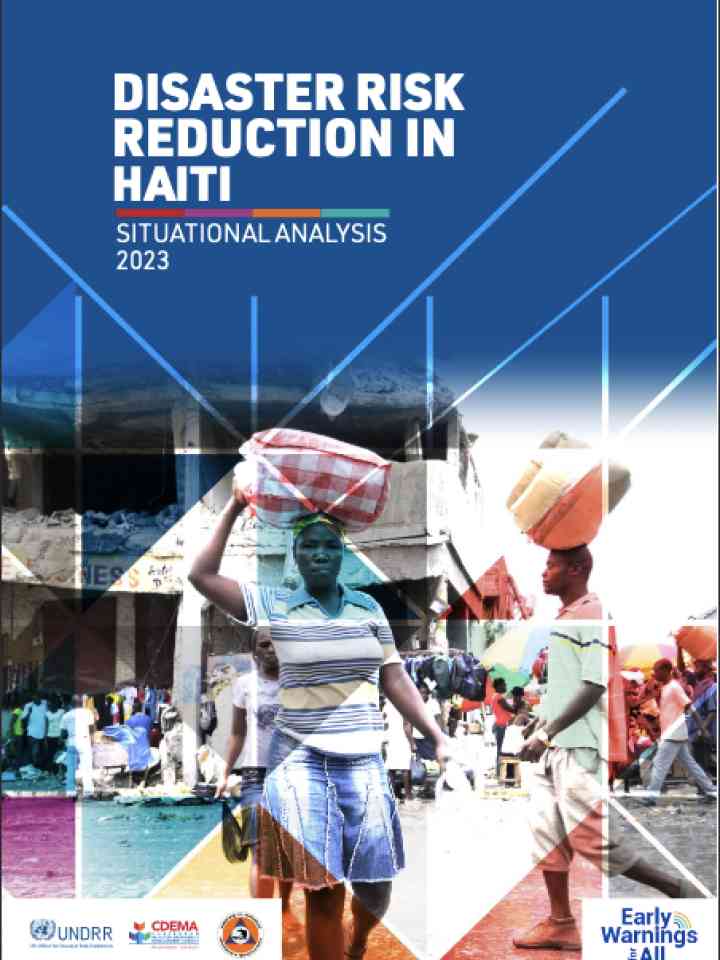Disaster risk reduction in Haiti: Situational analysis 2022
This study supports the implementation of the Country Work Programme for Haiti, as well as the design and revisions of other critical national instruments including the National Adaptation Plan, the National Climate Change Policy, the Strategic Development Plan, sectoral policies, strategies and plans, and other supporting national instruments for implementing the 2030 Agenda.
The findings have revealed that while geological hazards have been prevalent within the national risk landscape of Haiti, the country is also highly susceptible to hydrometeorological, environmental, chemical, biological, technological, and societal hazards. Underlying and unregulated development practices further exacerbate the risk profile of Haiti. Additionally, the threat of climate change and its cascading and systemic effects further signify the need for actions that holistically address increasing systemic risk. Much of Haiti's population, infrastructure and economic activities are concentrated on the Ouest department, especially around the urban areas of Port-au-Prince, Carrefour, Delmas and Pétion-Ville.
